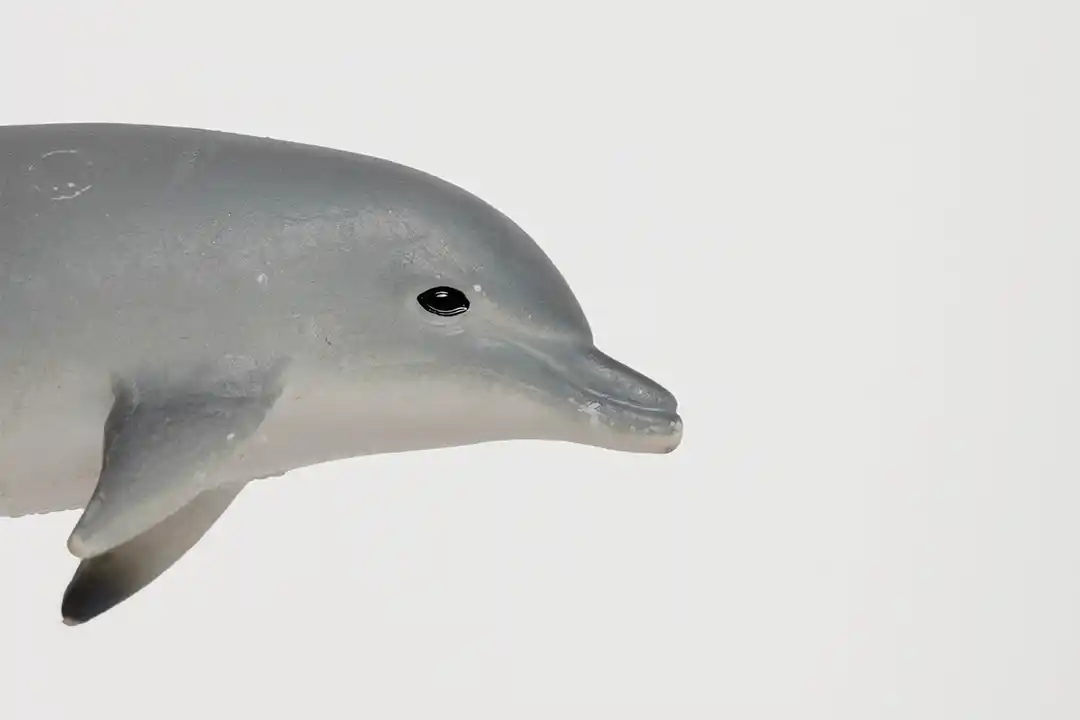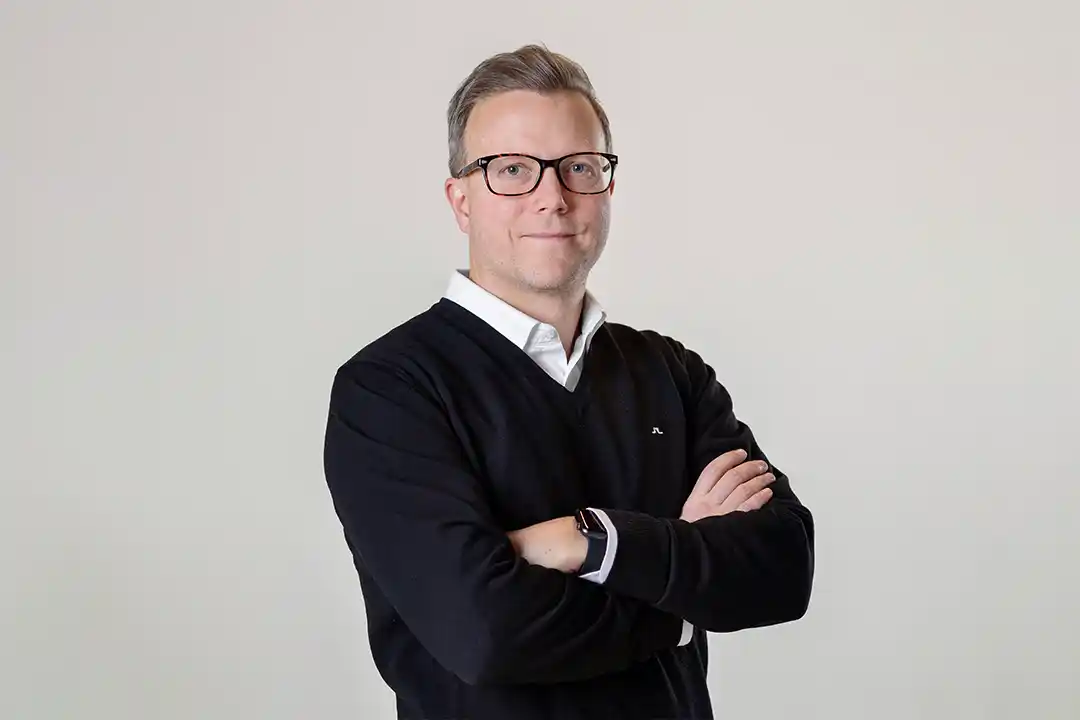As the tiger leaves the scene – there is room for curiosity
The venture capital market is going through a profound change. From extreme economic volatility to a demand for profitable growth. In a conversation, Andrew Kvålseth, Schibsted´s CIO and EVP of Growth and Investments, shares his view on what this means and how Schibsted is focusing on investing closer to core.
By Nathalie Kåvin

As the tiger leaves the scene – there is room for curiosity
The venture capital market is going through a profound change. From extreme economic volatility to a demand for profitable growth. In a conversation, Andrew Kvålseth, Schibsted´s CIO and EVP of Growth and Investments, shares his view on what this means and how Schibsted is focusing on investing closer to core.
By Nathalie Kåvin
In Schibsted Future Report 2022, a previous colleague wrote an article on what was defined in the VC world as “The Year of the Tiger.” At that time venture capital was booming. In the third quarter of 2021, a whopping 158.2 billion USD was invested into startups at various stages, according to CB Insights. This was more than double the investment compared to the third quarter of 2020. As recently mentioned by Asset Class, however, the influx of capital, coupled with readily available leverage, led to a booming era of dealmaking while sending asset prices and company valuations to record highs.
After three years of extreme economic volatility, the world and VC economy look quite different. As described in a recent article in TechCrunch, venture deal volume has fallen every quarter since Q2 2022 across the world, and the trend shows no signs of reversing.
A repricing of risk
So, what key impacts have these dramatic changes had on the global VC markets?
Andrew Kvålseth starts our conversation by explaining why we now are at a place where the market value companies vastly different than in the “years of the tiger.”
“Most importantly – we’ve seen a repricing of risk,” he says. “When interest rates were near zero, it mattered less whether or not you earned a million dollars today or a million dollars five years from now. This put a tremendous focus on gaining scale, and very little focus on profitable growth.”

Leaving the tiger behind, Andrew Kvålseth thinks we’re in the year of the dolphin.

Leaving the tiger behind, Andrew Kvålseth thinks we’re in the year of the dolphin.
As interest rates continue to rise and as investors adjust to the changing economic conditions, the high prices previously paid for assets have started to eat into returns. This has dramatically changed the type of business models that work, the type of investments that work, and how much a company is valued at.
“The result is a re-rating of the value of all ventures and early-stage growth companies. Investors now value companies completely differently and want to make sure companies can find profitable growth sooner rather than later.”
Knowing your local market
Andrew Kvålseth joined Schibsted in 2021. After spending eight years in Asia now he is responsible for all investments in Schibsted, managing a large venture portfolio and overlooking the larger strategic investments. The years in Asia have given him a special interest in the area – but also some personal learnings. Not least about the importance of knowing your local market, when developing consumer products and business solutions.
And as the global VC market navigates tougher times, he believes the European and Nordic region has a clear competitive advantage related to localization. Despite a slower 2023, Europe’s share of global VC is at a record 19% in 2023, up from 13% in 2013, according to the latest statistics by Dealroom. Europe’s share of global early-stage VC is at a record 24% in 2023. This means Europe is catching up with the US at the very earliest stages.
When it comes to our news media business; artificial intelligence is obviously important.
Andrew explains that there are some key differences between operating startups in different markets like the US, Europe and Asia. The US has the highest GDP globally of any country, with roughly 350 million people, meaning that if you can dominate that market, you can reach a massive scale. There is value in investing to get the number one position in a market like that. You can scale quickly and the rewards for being dominant are tremendous, meaning you can take a lot of risk to get there.
“But in Europe, the story is quite different. You really need to scale country by country in most businesses. You need to acquire new customers, you need to beat local competitors, and you need to adhere to local regulations. So, it really requires a bespoke approach market by market and more of a controlled growth. It’s not just about securing that number one spot, no matter how much capital it takes,” he says.
“I believe this can foster a different kind of innovation that can give European players an advantage.”
The main focus for Schibsted is to strengthen the core business areas – marketplaces and news media.


The main focus for Schibsted is to strengthen the core business areas – marketplaces and news media.
When he arrived in Asia ten years ago, he understood that people typically look at Southeast Asia as one market. When it instead is a collection of largely different countries with different political systems and consumer habits, and in different stages of maturity.
“This gave me humbleness as to how challenging it is to understand a local market and consumers when you did not grow up being a consumer in that market.”
This is also why Schibsted’s growth and investment team have people from each Nordic market, where they operate.
“Just like with Asia, people from the outside look at the Nordic countries as quite similar, but in reality it’s quite the opposite with different cultures and consumer preferences in each country.”
Strengthening the core
So, what are the major trends this team in Schibsted is looking at when investing in new companies in the next couple of years?
Andrew is very clear on one thing – the main focus is to strengthen the core business areas – marketplaces and news media.
“When it comes to our news media business; artificial intelligence is obviously important, it will affect how content is generated but also how people consume news. And the fact that a large part of the population is now consuming news through thirty-second snippets on TikTok is a new reality.”
Schibsted has a core part of its vision to protect news, by upholding a society built on trust and transparency. This is something we believe is a fundamental part of a democracy.
“And that’s in a way being threatened in the way people consume media today. This means we need to look at how we invest in formats, companies and platforms that allow us to get quality news, which we believe is important to ensure freedom and democracy and to provide that to consumers in a way they find attractive and engaging.”
He also points out that people blend entertainment, sports and news into one experience. And that in Schibsted we are very strong within news, but we need to become stronger in entertainment and sports.

Andrew Kvålseth, CIO and EVP Growth and Investments in Schibsted.

Andrew Kvålseth, CIO and EVP Growth and Investments in Schibsted.
Looking at Schibsted’s marketplaces, they came from a horizontal classified business like you had in the printed paper, and then moved online becoming a success with brands like FINN in Norway, Blocket in Sweden and Lebocoin in France.
Now they are entering a transformational journey, moving into vertical business models, to make consumer experience better and more relevant.
“A good example is FINN, where if you buy your car in Norway, or sell your car like I recently did, you can do the entire journey through the platform. From transferring the ownership of the vehicle, to getting the right insurance, to ensuring your payments. And that’s what’s disrupting our marketplace model to a transactional end-to-end highly focused marketplace model.”
Supporting transformation
Looking at the larger acquisitions Schibsted made in the past year or two, a lot of them are focused on marketplace models that support this transformation. Autovex was acquired in Finland, a vertical specialist for car sales. Nettbil, a digital used car marketplace is another example, as is Gire Mobility, a B2B marketplace for flexible on-demand car transportation.
“There are more in the pipeline that we look at in this space,” Andrew reveals.
So, Schibsted is looking at both disruptive news media options and investing across the marketplace space.
“We still have a value-driven and long-term approach to our investments, as we had even during the more tiger-focused years. But we also need to stay curious, constantly try to learn and evolve, yet staying true to who we are and our mission as a company, empowering people in their daily lives.”
So, if we’ve left the tiger far behind – what animal would best describe that kind of investor?
“I would say maybe it’s the year of the dolphin, always stay curious and learning.”
[Sassy_Social_Share]

Nathalie Kåvin
Head of Corporate Brand, Schibsted
Years in Schibsted: 5
My favourite song the last decade: Stark & Sårbar – Moonica Mac